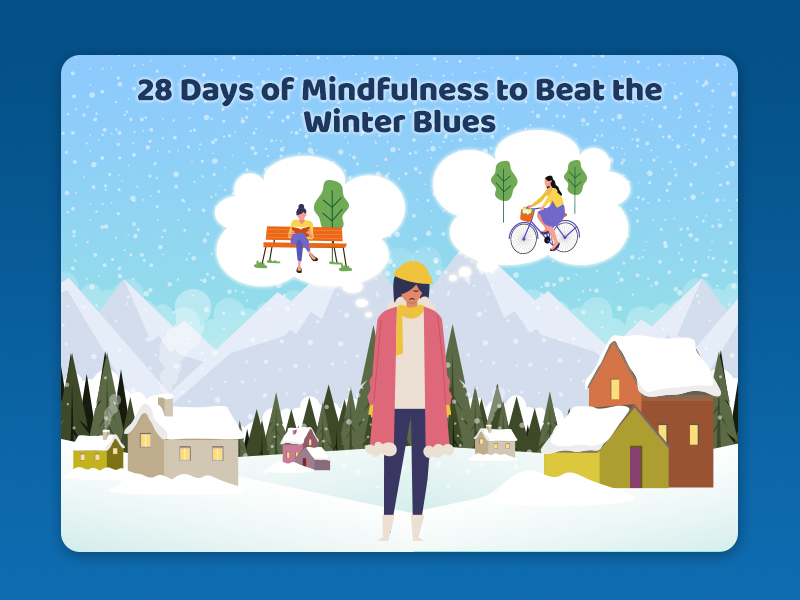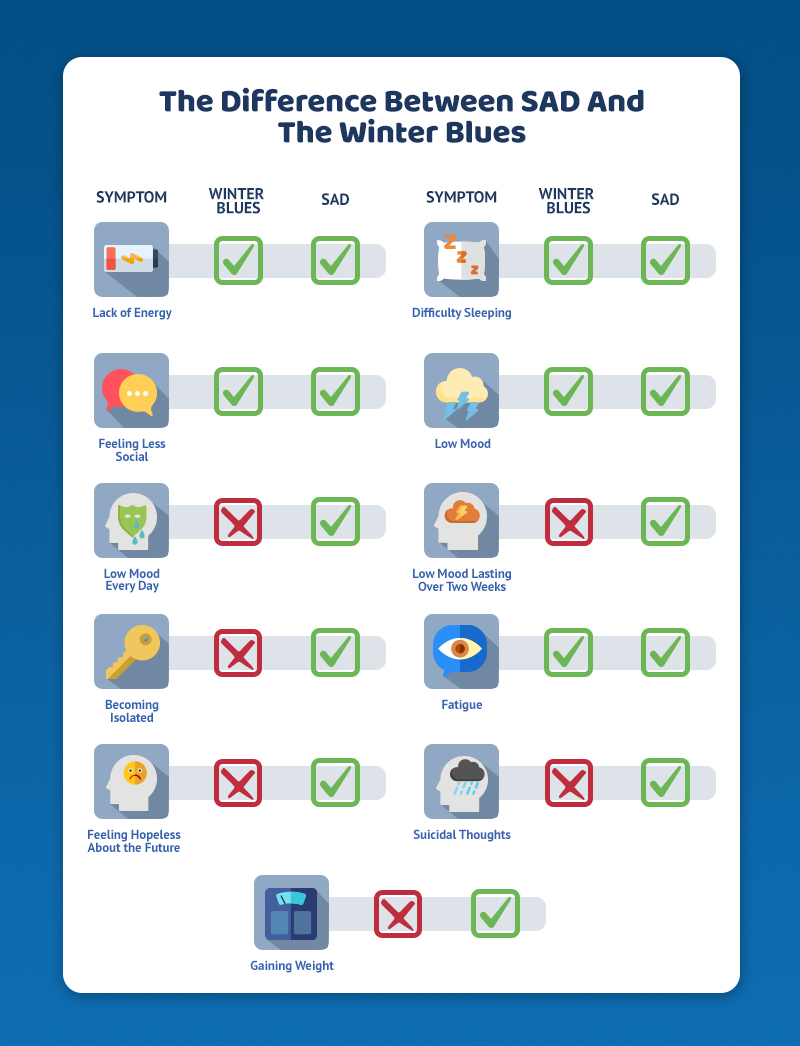
There is a growing awareness around mental health, and at this time of year Seasonal Affective Disorder (SAD) can become a real problem, as can the less serious winter blues. Seasonal Affective Disorder is depression occurring at specific times of the year, usually autumn and winter, although some can be affected during spring and summer. Luckily, there are lots of things that can be done to help with the winter blues and lift a low mood.
Psychologist Andrew Bridgewater spoke to us about his experience of patients with SAD and said that 20% of the patients he sees suffer from SAD each year. He said, ‘Anyone can experience SAD, especially if they find themselves under sustained stress or experience a very challenging life event at that time of year.’
Here Insulation Express have provided tips for coping with the winter blues and a calendar to get you started on preventing SAD this autumn.
From keeping active to eating well, we’ve got all the advice on how you can help yourself this autumn/winter.
Remember that whenever experiencing a low mood or symptoms of depression, it is best to seek medical advice. This is not meant as a diagnostic tool, but to help those with the winter blues help themselves. See your GP if you have any symptoms of depression or seasonal affective disorder.
How to Tell the Difference between S.A.D. and the Winter Blues

For those suffering from the winter blues, they could be experiencing low mood, feeling less social and struggling to sleep. When these things become more concerning, it can be a sign of Seasonal Affective Disorder, especially when these symptoms have persisted for longer than a few weeks and when the person feels themselves becoming isolated, struggling to think about the future or having suicidal thoughts. Gaining weight, feeling exhausted and struggling in social situations are all signs that there could be something causing this low mood.
Mindfulness Calendar
Use the activities on this calendar to establish a self-care routine throughout the autumn and winter months. This is just an example but could be repeated each month to help stay on track with a self-care routine.

Top Tips for Winter Wellness
- Try some moderate exercise – make sure you are getting the recommended 150 minutes of moderate cardiovascular activity each week. Feeling physically well will help to feel mentally well.
- Eat Well – foods rich in vitamin D have been proven to help SAD sufferers. Eating lots of fruit and vegetables and food rich in good fats will help you cope with the colder months too.
- Find the Light – spend as much time as possible in natural daylight. Plan walks in the morning and afternoon so that when you get home you have had time outdoors. You could also consider a light therapy lamp, although these can be expensive.
- Meditate – mindfulness practices have now been proven to help SAD sufferers and those struggling with low mood. Try different forms of meditation until you find the one that is right for you.
- Develop a Routine – people with SAD might struggle to sleep so consider getting into a set routine of waking and sleeping at the same time every day and carrying out the same activities before going to bed (even at the weekends). This will help your body prepare for sleep and help you overcome the darker days.
Wanting to keep warm and relaxed this winter? Discover the Scandinavian Secrets to Keeping Cosy. Or, use music to boost your mood and discover the secrets to creating your own recording studio at home. If caring for the environment is more your thing, discover how an off-grid lifestyle could seriously cut down on carbon emissions as well as saving money.
Check out books on Mindfulness
You may also like
Top 15 Best Sites to Buy Sports Nutrition, Health Supplements & Vitamins Online
Happy and Healthy Life – The Importance of Active Aging
A Holistic Mind and Body Connection
Top 11 Tips for Healthier Sleep Habits
Why Are Vitamins So Important? [Infographic]
